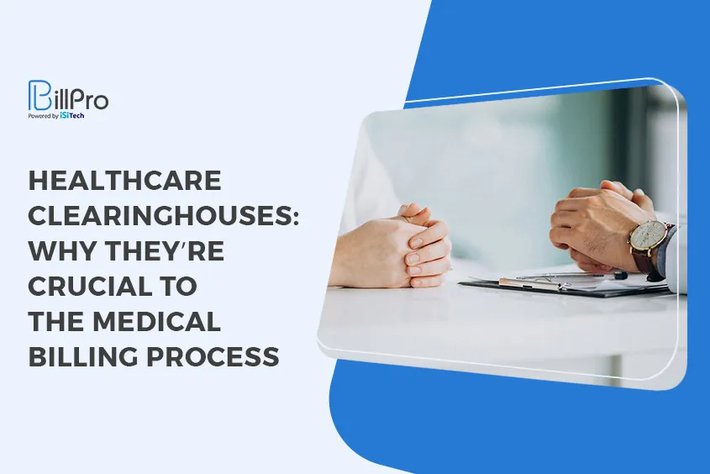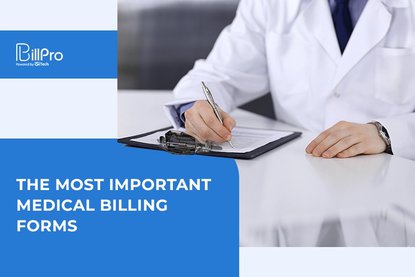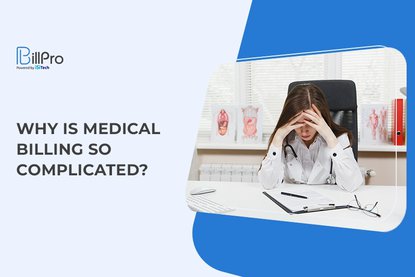Anyone who’s ever dealt with medical billing understands what a challenge it can be. The process is long, different payers require different formats, and errors are common, especially if billing is done manually. Medical billing software helps alleviate these pain points, but it’s not the only hero in the game. Healthcare clearinghouses are a huge reason claims containing errors aren’t sent through to payers. What is a healthcare clearinghouse, you might ask? They can exist on their own or be integrated with billing software, but either way, they’re important to the outcome of the claim.
What is a Healthcare Clearinghouse?
A clearinghouse acts as the middleman between the provider and payers. Once a claim is filed by a medical biller, it’s sent directly to a clearinghouse to check for any errors. When the clearinghouse establishes that the claim doesn’t have any errors, they can then send it to the relevant payer or payers.
Why are Healthcare Clearinghouses Important?

Put simply, clearinghouses bridge the gap between healthcare providers and insurance payers, increasing the chance of clean claims ultimately ending up in payers’ hands. Medical billers can deal with hundreds of claims per day that all require different payer regulations. When all is said and done, it’s easy for an error to slip by. Clearinghouses exist as an extra set of eyes to decrease the chance that a claim is rejected or denied once it gets through to the payer. The following are some of the many reasons clearinghouses are a necessary component to the medical billing process in healthcare.
They’re HIPAA Compliant
For the sake of patient privacy and security, any healthcare entity dealing with sensitive information must meet HIPAA standards. Medical billing clearinghouses fall into this category. This means that any claim information shared with a clearinghouse is done so in a safe, encrypted manner to ensure all data is protected. Clearinghouses aren’t a sketchy third-party option—they’re a HIPAA-compliant entity that should always be considered, especially when dealing with a large volume of claims.
They Scrub Claims for All Errors
A claim can get to a clearinghouse a couple of different ways. The provider may send a batch of claims directly to a specific clearinghouse, or the billing software the office is using may automatically send claims through to the clearinghouse when the time comes. Once the claim is in the clearinghouse’s possession, it’s time for the quality check process to begin. The clearinghouse checks for any code or provider inaccuracies, verifies that patient data, including name, address, birth date, etc. are correct, and ensures that there are no duplicate or incorrect billing codes on the claim.
They Create Better Relationships Between Providers and Payers
Healthcare providers and insurance payers don’t always have the easiest time communicating on matters, but having a healthcare clearinghouse involved makes for a much smoother process. If you have any questions or problems regarding your claim, the clearinghouse will be able to provide in-depth answers and give you any information you need in a timely manner. They aren’t busy with other daily tasks—this is their whole job, so they’re immersed in the world of claims day in and day out.
They Streamline the Overall Billing Process

Making a clearinghouse a regular part of your billing process is a great way to streamline your workflow. Medical claims are never going to be submitted properly if your team doesn’t develop and follow a strict process, and clearinghouses are definitely an integral part of that process. Clearinghouses, along with billing software, allows claims to be processed within days instead of months. Providers get reimbursed faster, and patients can rest assured that their claim is closed and dealt with.
Built-in vs. Third Party Clearinghouses
Deciding whether to invest in software with a built-in clearinghouse or use a third-party one is a decision all providers have to make. Like anything, there are advantages and disadvantages to both, however, in today’s world of technological advancements, finding software with a built-in clearinghouse is easy and may make more sense for your business. Built-in clearinghouses allow for direct, seamless communication, and there’s no concern that information will get lost in translation. It’s also cost effective. If you’re already planning on investing in software, the clearinghouse may be included or available for an additional fee. With something as complicated as medical billing, the simplest solution is always the best. Each business should decide what that means for them.
Upgrade Your Process With NY Medicaid Billing Software
A clearinghouse is a crucial component of medical billing, but so is software. If you’re still billing claims manually, or if you haven’t found the right system for your operation yet, get in touch with the experts at BillPro. We’d love to schedule a free demo to show you our software in action—contact us today!

 5/5 (3 votes)
5/5 (3 votes)
 466 views
466 views




